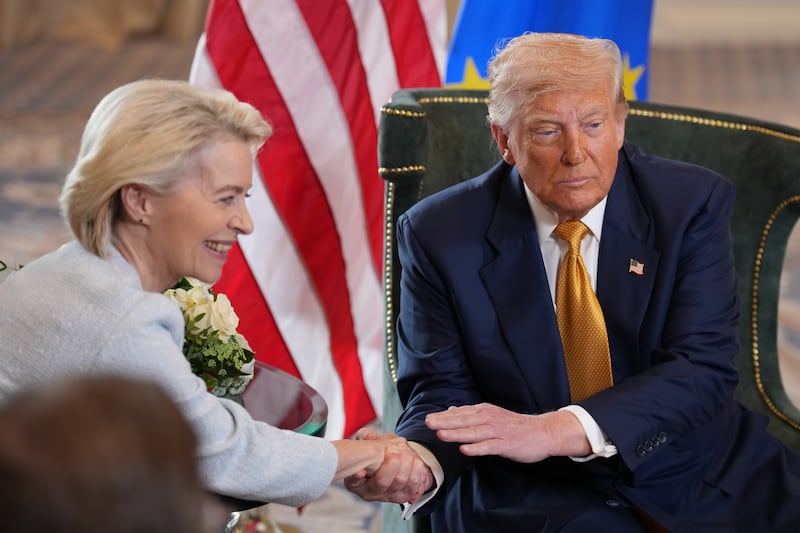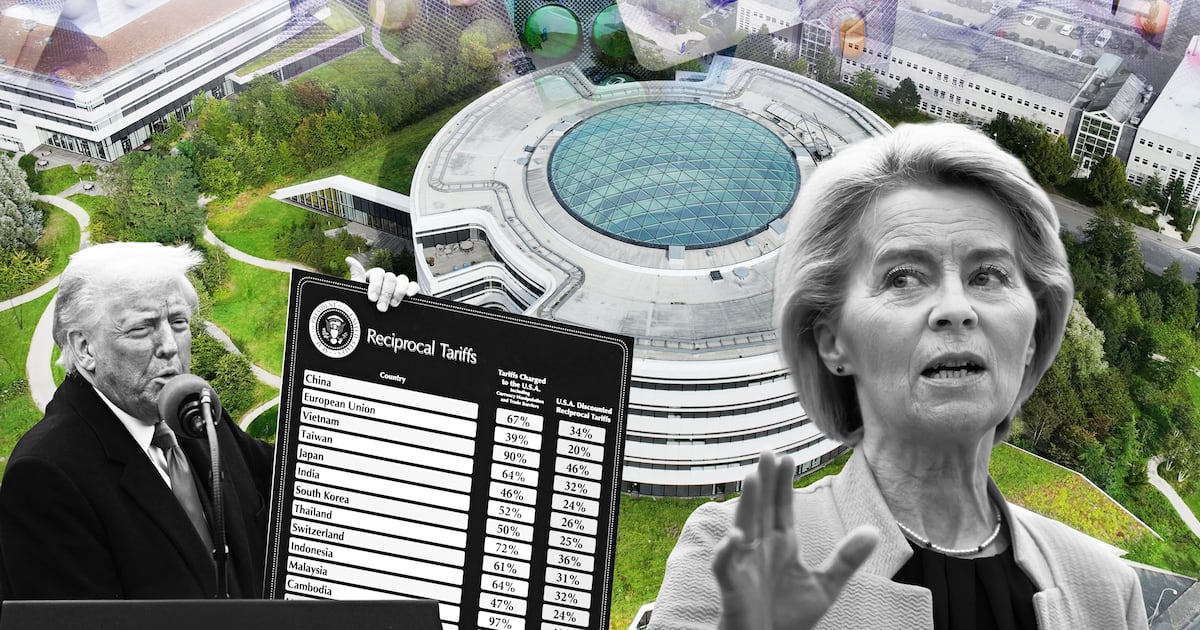The Government and the European Commission have both said it is their “clear understanding” that a maximum 15 per cent tariff will be applied by the United States to exports of pharmaceuticals and semiconductors.
Taoiseach Micheál Martin said the Government, and the EU’s chief negotiator Maros Sefcovic had a clear understanding of the tariff ceiling for the two key sectors, which accounted for the bulk of Ireland’s exports of €72 billion of goods to the US in 2024.
Senior figures in the European Commission also said its negotiating team had been given commitments by president Donald Trump’s administration on this point.
“Once they introduce tariffs on pharma, they will be at the level of 15 per cent,” said a senior EU official involved in the talks.
Mr Sefcovic, the EU’s trade commissioner said yesterday he believed the “commitment will be honoured”.
Mr Martin defended the European Union agreeing to accept tariffs, saying it avoided a trade war that would have been “ruinous” to Irish jobs and the economy.
He said Ireland and Europe had to face “new realities” and the deal that was struck in Scotland on Sunday between EU Commission president Ursula von der Leyen and Mr Trump was preferable to higher tariffs and a prolonged trade conflict.
“New realities are at play. The stability and predictability that this agreement brings is important for businesses and is important for consumers and indeed patients when it comes to the manufacturing and distribution of medicines.”
[ EU-US tariffs deal at 15% preferable to ‘ruinous’ trade war, says TaoiseachOpens in new window ]
 The EU and the US sides are continuing to work out several finer points of detail. Photograph: Andrew Harnik/ Getty Images
The EU and the US sides are continuing to work out several finer points of detail. Photograph: Andrew Harnik/ Getty Images
Asked about criticism that the deal was a “capitulation” by the EU, the Taoiseach said he understood the criticism but the avoidance of a trade war was the least worst option.
It is understood that during the crunch meeting between Mr Trump and Ms von der Leyen, the US president initially pushed for tariffs of 30 per cent before dropping his demand to 21 per cent, and then settling on 15 per cent.
The EU and the US sides are continuing to work out several finer points of detail, including potentially extending tariff exemptions for aircraft and some medical devices to more sectors.
EU officials have been pushing for carve-outs to apply to spirits and wine, which would be welcome news to the Irish whiskey industry given it is a big exporter to the US.
Minister for Finance Paschal Donohoe would not be drawn on the agreement’s impact on the budget in October. There were other (positive) factors such as certainty and resultant economic activity to be considered, said a spokeswoman.
A further examination would take place closer to budget time, she added.
Minister for Enterprise Peter Burke will outline key supports for Irish businesses in the face of higher tariffs at Tuesday’s Cabinet meeting. They include a new market research grant of up to €35,000 which will be available from next month.
